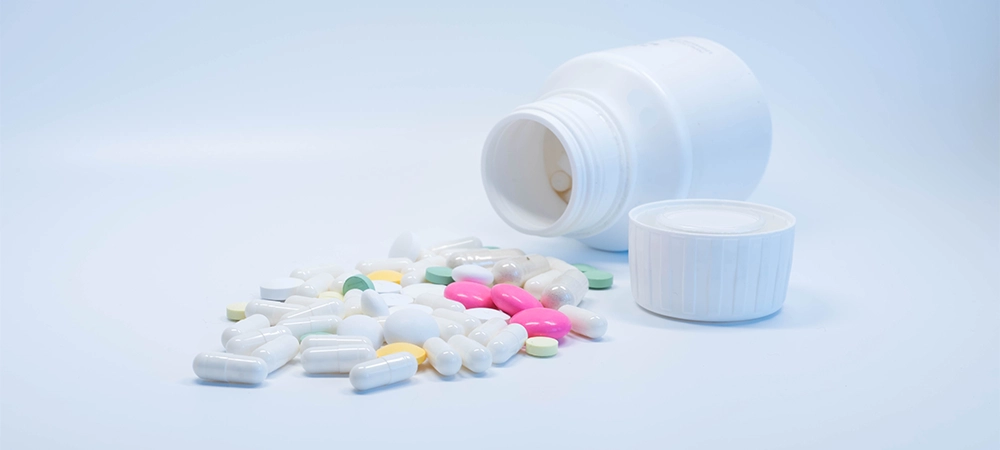Opioid addiction is a complex issue, but recovery is possible with the right support and treatment. At Addiction Rehab Toronto, we offer a range of medically assisted treatment options, including methadone and suboxone, to help you overcome opioid dependence. But which medication is right for you?
This guide will help you understand the key differences between these two medications so you can make an informed decision about your recovery journey.
What Are Methadone and Suboxone?
Methadone and suboxone are medications used in medically assisted treatment for opioid addiction. They work by acting on the same receptors in your brain that opioids like heroin, fentanyl, or oxycodone do, but with key differences:
Methadone
- It’s a full opioid agonist, meaning it fully activates the opioid receptors. This reduces cravings and withdrawal symptoms by mimicking the effects of opioids but without the same “high.”
- Think of it as replacing a more harmful opioid with a controlled, less euphoric one.
Suboxone
- It’s a combination of buprenorphine (a partial opioid agonist) and naloxone (an opioid antagonist).
- Buprenorphine partially activates the opioid receptors, reducing cravings and withdrawal symptoms but with a lower risk of euphoria or overdose.
- Naloxone blocks the effects of other opioids, making it difficult to misuse suboxone.
In simpler terms, methadone is like a replacement player on a sports team, filling the role of the original player (the opioid you’re addicted to) without the same star power. Suboxone is like a substitute player who not only fills the role but also discourages the original player from returning to the field.
Both medications can be effective tools in overcoming opioid addiction, but the choice between them depends on your individual circumstances and needs. It’s essential to consult with a healthcare professional to determine the best option for you.
Related Article: Suboxone Withdrawal: Timeline, Symptoms, What to Expect

Methadone vs. Suboxone: What Sets Them Apart?
While both methadone and suboxone are effective in treating opioid addiction, there are some key differences to consider.
Dosage and Administration
- Methadone: Typically requires daily visits to a clinic, where you’ll receive your dose under supervision. This can be helpful in the early stages of recovery, but it can also be less convenient for those with busy schedules or limited transportation options.
- Suboxone: Usually prescribed as a take-home medication. After an initial stabilization period, you may be able to take your dose at home, with less frequent clinic visits. However, this requires a high level of responsibility to avoid misuse.
Side Effects and Risks
- Methadone: Potential side effects include constipation, drowsiness, sweating, and sexual difficulties. In rare cases, methadone can cause respiratory depression or heart problems. Withdrawal from methadone can be prolonged and uncomfortable.
- Suboxone: Common side effects include headache, nausea, constipation, and insomnia. While the risk of overdose is lower than with methadone, it’s still possible. Withdrawal from Suboxone can also be challenging but is generally shorter in duration than methadone withdrawal.
Eligibility and Availability
- Methadone: Usually recommended for individuals with more severe opioid addiction or those who have not responded well to other treatments. It’s available through specialized clinics that are licensed to dispense methadone.
- Suboxone: May be a suitable option for individuals with less severe opioid addiction or those who prefer a less restrictive treatment schedule. Certified physicians can prescribe it in their offices.
The best way to determine which medication is right for you is to consult with a healthcare professional who can assess your situation and discuss each option’s potential benefits and risks. Here at Addiction Rehab Toronto, we can help you make an informed decision about your treatment.
Related Article: How to Overcome Methadone Addiction?
Which Medication Is Right for You?
Choosing the right medication for opioid addiction treatment is a personal decision that requires careful consideration of several factors:
Factors to Consider
Severity of addiction –The length and intensity of your opioid use may influence the most suitable medication.
Medical history – Pre-existing health conditions like liver or kidney problems may require certain adjustments to the dosage or type of medication.
Lifestyle and preferences – Consider your daily routine, schedule, and comfort with clinic visits or take-home medications.
Pregnancy or breastfeeding – If you’re pregnant or breastfeeding, your options may be limited, and close medical supervision is essential.
Personalized Treatment Plans
There is no one-size-fits-all answer when it comes to methadone and suboxone. It’s crucial to consult with a healthcare professional specializing in addiction medicine to determine the best option for your needs.
Our physicians will conduct a thorough assessment, considering your medical history, current situation, and preferences. We’ll then develop a personalized treatment plan that maximizes your chances of success.
The Role of Medically Assisted Treatment in Recovery
While methadone and suboxone are powerful tools in managing opioid addiction, it’s important to understand that they’re just one part of a comprehensive treatment plan. True recovery involves addressing the root causes of addiction and developing healthy coping mechanisms to prevent relapse.
Counselling and Therapy
- Addressing the Root Cause: Individual and group therapy sessions help you explore the underlying issues that contributed to your addiction. By understanding your triggers and developing healthier coping strategies, you’ll be better equipped to maintain sobriety.
- Building Resilience: Therapy provides a safe space to process emotions, build self-esteem, and develop essential life skills.
- Managing Co-Occurring Disorders: Many individuals with addiction also struggle with mental health conditions like depression or anxiety. Therapy can address these issues simultaneously, leading to a more holistic recovery.

Support Groups and Community
- Peer Support: Connecting with others who understand your struggles can be incredibly empowering. Support groups provide a safe space to share your experiences, receive encouragement, and learn from others.
- Building a Sober Network: Surrounding yourself with supportive people committed to sobriety can be crucial for long-term recovery.
- Staying Connected: Community events and activities can help you build healthy relationships and discover new hobbies and interests that support a sober lifestyle.
By combining medication with counselling, therapy, and community support, you can create a well-rounded recovery plan that addresses all aspects of your well-being.
Addiction Rehab Toronto: Your Partner in Recovery
We believe that recovery is a journey, not a destination. Addiction Rehab Toronto is committed to providing comprehensive care and support to help you overcome opioid addiction and build a fulfilling life in recovery.
Comprehensive Treatment Programs
We offer a wide range of evidence-based treatment programs to meet your individual needs, including:
- Supervised detox
- In-patient treatment
- Virtual rehab
- Sober living
- Family therapy
- Lifetime aftercare
Individualized Care
We understand that no two individuals are the same, and neither are their paths to recovery. Work with our healthcare professionals so we can create a tailored treatment plan that addresses your specific needs, overcomes your unique challenges, and helps you achieve your recovery goals.
Our facility has extensive experience in using methadone and suboxone as part of our medically assisted treatment program. Our physicians will carefully assess your situation to determine the most appropriate medication and dosage for you, and our counsellors will provide ongoing support to help you navigate the recovery challenges.
Take the First Step
Ready to break free from opioid addiction and reclaim your life? We’re here to support you every step of the way. Contact Addiction Rehab Toronto today to schedule a consultation. Our compassionate team is ready to guide you on your path to recovery.







